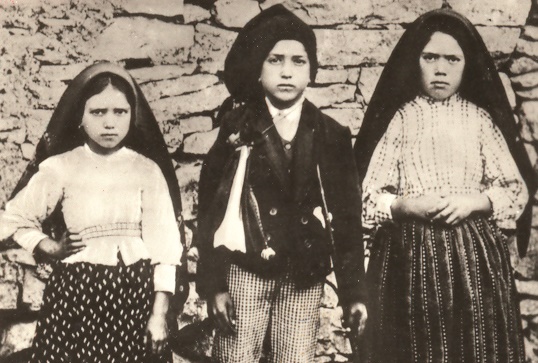

by Michaelyn Hein –
The family room television flashed from commercial to commercial as my son lounged in front of it, exhausted from the heat of the summer day he’d just been out running around in. From the kitchen, I half listened to it as I bustled about, preparing dinner.
The next commercial that came on barely registered with me. I was too busy looking for the skillet that, for some reason, wasn’t with the rest of the pots and pans. Still, I caught glimpses of girls my son’s age winning a race, earning an academic award and reaching the top of an indoor rock wall. Praises for the girls poured from the narrator’s mouth.
“Girls can do anything they set their minds to,” the ad asserted. “You are strong, determined. You persevere.”
The compliments and encouragement toward young females continued, and my mind focused more on my own frustration at a lost pan than on a frustration I didn’t know was mounting in my son.
“Mom,” he asked pointedly from the adjacent room. “How come nobody thinks boys are great?”
It was a sincere question. As soon as he asked it, the seemingly innocent lauding of females that had echoed in the background was pushed front and center in my mind.
“Because of the commercial?” I asked.
He nodded. “Everything is about girls. Everybody loves girls. But nobody loves boys. They just make us look stupid and tell us we’re bad,” he responded.
And that was the point. Not that girls shouldn’t be encouraged. Not that they shouldn’t be revered and applauded and praised. But that in our contemporary society, while girls are commended, boys are ridiculed. Their maleness mocked and spat upon. Their masculinity denounced as toxic.
As much as I try to shield my son from this tragic truth, it has still apparently seeped through the cracks in our home’s foundation and wormed its way into his developing, impressionable brain.
I could only nod in agreement at my son’s resentment. “You’re right,” I acknowledged. “Our society does paint boys in a very bad light, doesn’t it? But you know what? It actually needs your goodness – the virtues that make you male – desperately. As much as it needs the virtues that make your sister female.”
We have a very real problem on our hands when our boys learn from their youngest ages that their masculinity is something to feel ashamed of.
Indeed, our society ironically needs to be saved by the virtues of masculinity, even as it shuns it as nothing but destructive. Because masculinity, as God created it, is actually productive, and it’s about time we let our husbands and sons and fathers know it. It’s about time we, as women, build up our men rather than participate in their tearing down.
For how can society encourage the razing of one of the pillars upon which it rests? How can the family stay silent while one of the legs upon which it stands is knocked out from under it? How can women support – either aloud or by their silence – the attempted ruination of their other half? And how can mothers do nothing but watch as their sons are told – either directly or indirectly – that they are not only useless but dangerous?
No, we need to stop sending our men and boys the message that we don’t appreciate their God-given gift of masculinity and start letting them know how much we desire it.
For it is authentic masculinity that defends and protects. It is true masculinity that builds and constructs. It is genuine masculinity that leads and provides and sacrifices.
“But what about men who use their strength to cause harm? Indeed, their masculinity is toxic, isn’t it?” comes the inevitable question. The answer, as it always should be, is that we don’t throw out the virtue with the sin.
Blessed Pier Giorgio Frassati used his love of mountain climbing to challenge friends to return to the Sacraments. “If I beat you back down the mountain,” he’d say, “you must come to Mass with me.” This was the virtue of masculine leadership.
St. Maximilian Kolbe offered his life for another’s in the German death camp at Auschwitz. This was the virtue of masculine sacrifice.
St. Joseph ushered his wife and newborn baby boy from the dangers in Bethlehem to the temporary safety of Egypt. This was the virtue of masculine protection.
Our Lord, our pinnacle of perfect, authentic masculinity, did all of this and more. He provided with the multiplication of the loaves and fishes, and He still provides with His own flesh and blood in the Eucharist. He defended the woman caught in adultery. He led when He both admonished and forgave sinners.
But our society is no longer one that seeks to build; it is, these days, one that seeks to destroy. And the family, upon which the success of society rests, will be destroyed if the ground upon which it has been erected, its authentically feminine women and its authentically masculine men, is shaken.
We have a very real problem on our hands when our boys learn from their youngest ages that their masculinity is something to feel ashamed of. As parents, then, our most pressing solution is to safeguard and encourage their masculine virtues so that they may one day grow up to be truly holy men.
We must be keenly aware that no matter how much we try to steer our children’s eyes away from the shows that portray men as dunces and their ears away from the apologies that male politicians make for simply being men, our culture is so saturated with anti-masculinity that our boys can hardly help but absorb it.
And so we must set to work. In our families, fathers need to embrace, not apologize for, their masculinity. In our homes, mothers need to compliment fathers on their authentically male virtues. And in our world, we need to start thanking men for being holy, good and virtuous. We need to do this so that our voices begin to push out those of our very anti-male society.
Then, maybe one day, our sons will not question if people think they’re great, too. They’ll know that when they walk in the path that God has set out for them, they can’t be anything else.


Michaelyn Hein is a Catholic writer, wife and mother who resides in Hopewell, NJ. This article appeared in the Fall 2019 issue of Soul.











